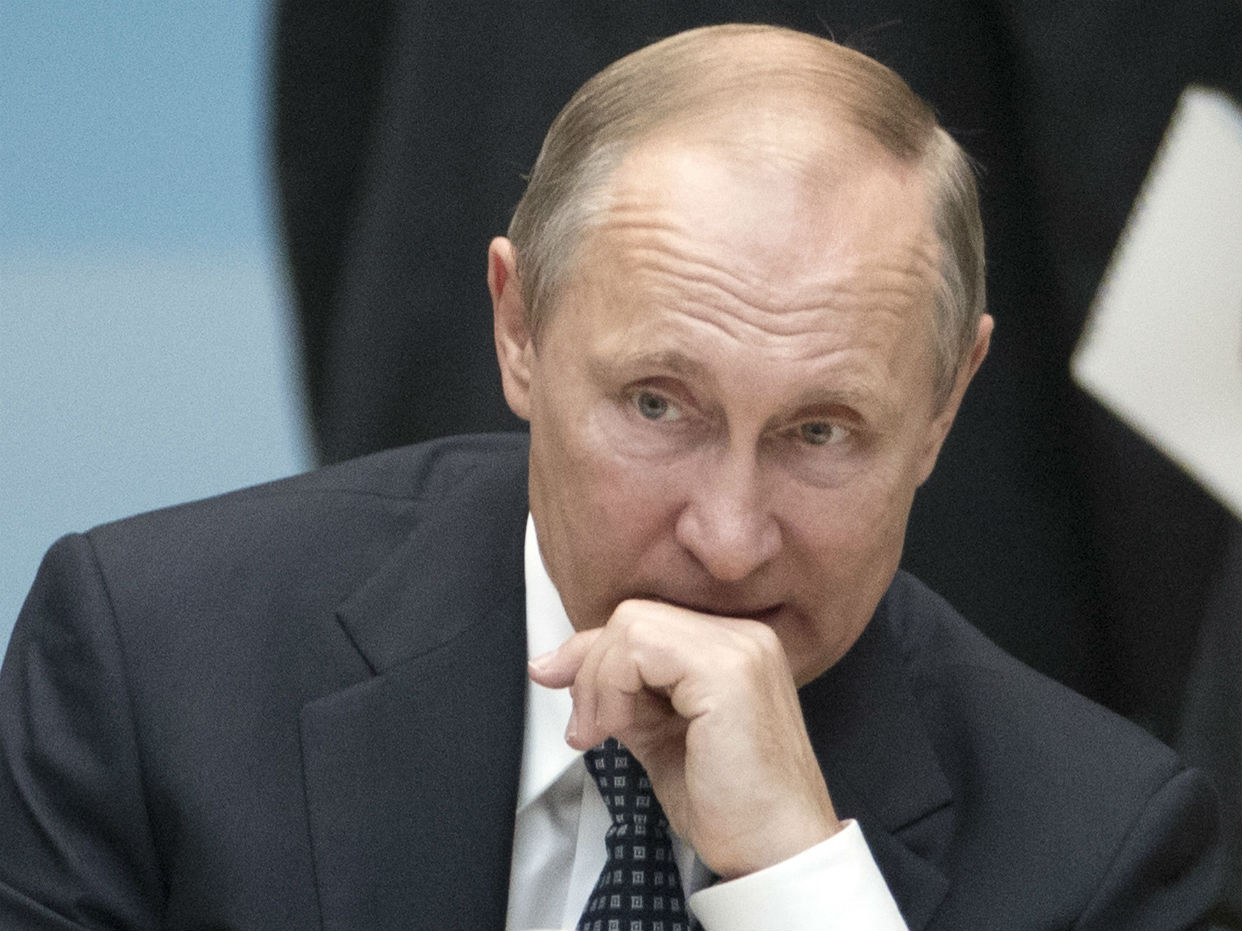US imposes fresh sanctions on Russia
Powerful oligarch and close Putin ally Yevgeniy Prigozhin among those targeted

A free daily email with the biggest news stories of the day – and the best features from TheWeek.com
You are now subscribed
Your newsletter sign-up was successful
The Trump administration has announced it is enacting new sanctions on Russia, in an effort to punish Moscow for its interference in the 2016 presidential election.
Fairfax Media reports that among those being sanctioned are “two major Russian intelligence agencies, and a St Petersburg-based “troll farm”, the Internet Research Agency, accused of producing fake news”, as well as 19 individuals linked to those organisations.
The list includes powerful Russian oligarch Yevgeniy Prigozhin, a close supporter and ally of Vladimir Putin who is also known as “Putin’s chef” because he owns a catering company that services the Kremlin.
The Week
Escape your echo chamber. Get the facts behind the news, plus analysis from multiple perspectives.

Sign up for The Week's Free Newsletters
From our morning news briefing to a weekly Good News Newsletter, get the best of The Week delivered directly to your inbox.
From our morning news briefing to a weekly Good News Newsletter, get the best of The Week delivered directly to your inbox.
The White House has also indicated that further sanctions are coming, over accusations that Russia had hacked into vital US infrastructure over a two-year period.
The Guardian says malware which had been traced back to Russia was found in the operating systems of “several organisations and companies in the US energy, nuclear, water and ‘critical manufacturing’ sector.”
In announcing the sanctions, the White House also formally backed the UK’s assessment that Russia is almost certainly responsible for the nerve agent attack on Sergei Skripal and his daughter in Salisbury.
The Washington Post reports that the sanctions “fell well short of the full penalties” approved almost unanimously by Congress last August, which Donald Trump had previously declined to enact.
A free daily email with the biggest news stories of the day – and the best features from TheWeek.com
Top Republican on the House Foreign Affairs Committee, Ed Royce, welcomed the sanctions as “an important step by the administration,” but added that “more must be done.”
Ranking Democrat on the House intelligence committee, Adam Schiff, has described the sanctions as a “grievous disappointment”, adding they fall far short of what is required to “deter Russia’s escalating aggression, which now includes a chemical weapons attack on the soil of our closest ally.”
-
 Political cartoons for February 14
Political cartoons for February 14Cartoons Saturday's political cartoons include a Valentine's grift, Hillary on the hook, and more
-
 Tourangelle-style pork with prunes recipe
Tourangelle-style pork with prunes recipeThe Week Recommends This traditional, rustic dish is a French classic
-
 The Epstein files: glimpses of a deeply disturbing world
The Epstein files: glimpses of a deeply disturbing worldIn the Spotlight Trove of released documents paint a picture of depravity and privilege in which men hold the cards, and women are powerless or peripheral
-
 Greenland’s capital becomes ground zero for the country’s diplomatic straits
Greenland’s capital becomes ground zero for the country’s diplomatic straitsIN THE SPOTLIGHT A flurry of new consular activity in Nuuk shows how important Greenland has become to Europeans’ anxiety about American imperialism
-
 Epstein files topple law CEO, roil UK government
Epstein files topple law CEO, roil UK governmentSpeed Read Peter Mandelson, Britain’s former ambassador to the US, is caught up in the scandal
-
 Iran and US prepare to meet after skirmishes
Iran and US prepare to meet after skirmishesSpeed Read The incident comes amid heightened tensions in the Middle East
-
 Which way will Trump go on Iran?
Which way will Trump go on Iran?Today’s Big Question Diplomatic talks set to be held in Turkey on Friday, but failure to reach an agreement could have ‘terrible’ global ramifications
-
 Israel retrieves final hostage’s body from Gaza
Israel retrieves final hostage’s body from GazaSpeed Read The 24-year-old police officer was killed during the initial Hamas attack
-
 China’s Xi targets top general in growing purge
China’s Xi targets top general in growing purgeSpeed Read Zhang Youxia is being investigated over ‘grave violations’ of the law
-
 Ukraine, US and Russia: do rare trilateral talks mean peace is possible?
Ukraine, US and Russia: do rare trilateral talks mean peace is possible?Rush to meet signals potential agreement but scepticism of Russian motives remain
-
 Panama and Canada are negotiating over a crucial copper mine
Panama and Canada are negotiating over a crucial copper mineIn the Spotlight Panama is set to make a final decision on the mine this summer